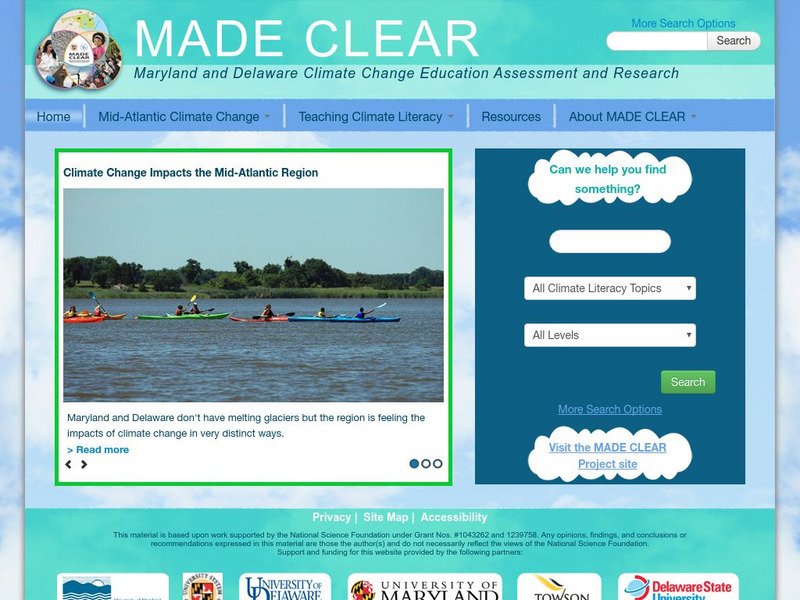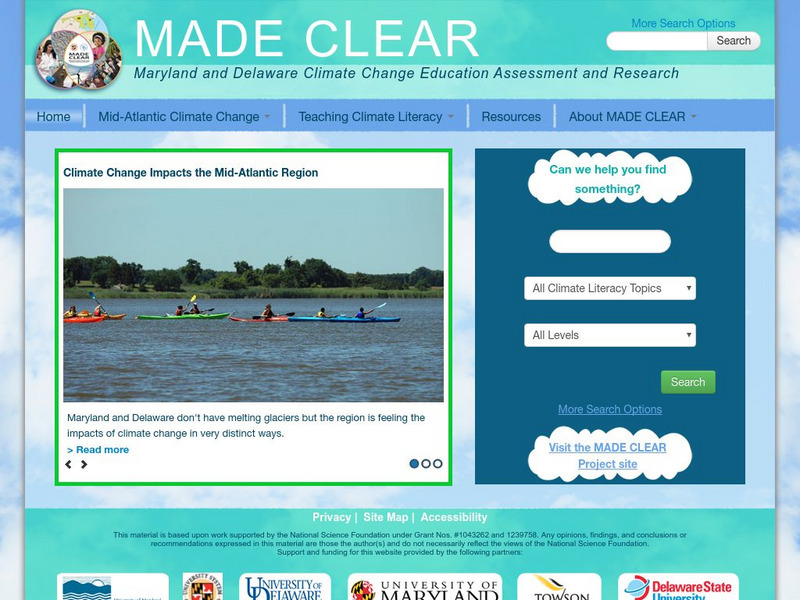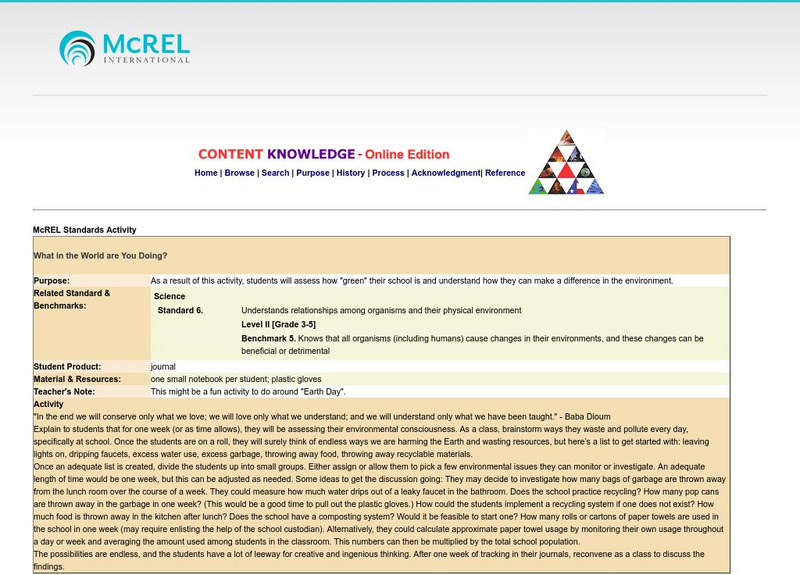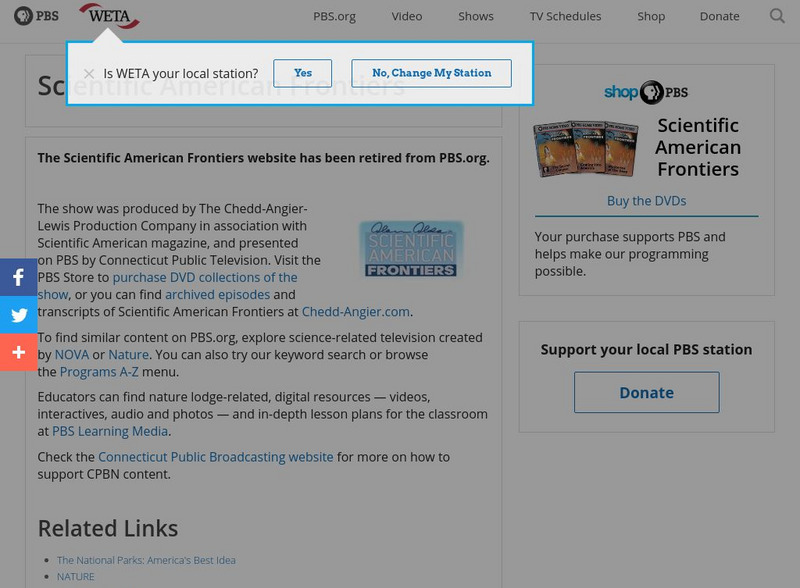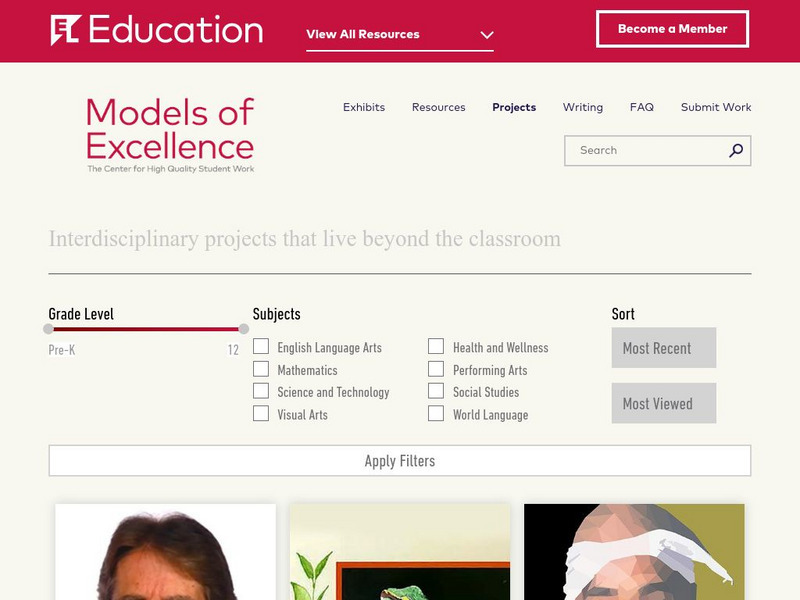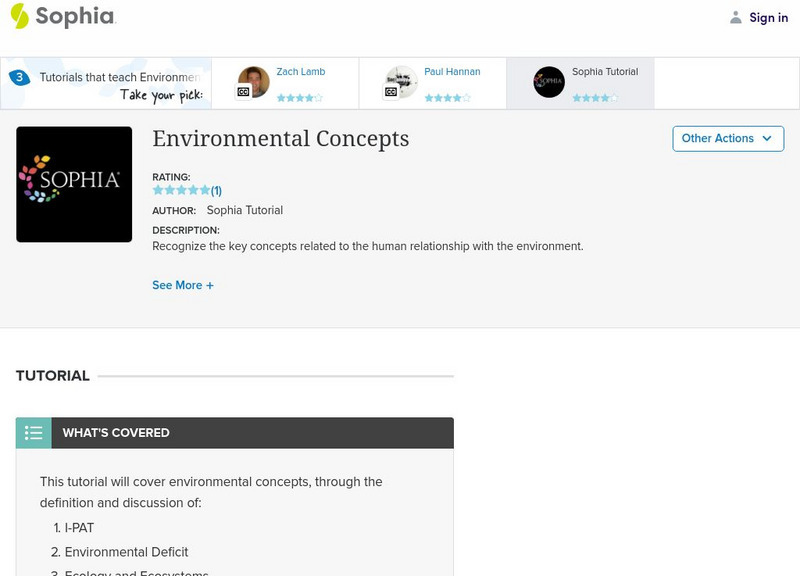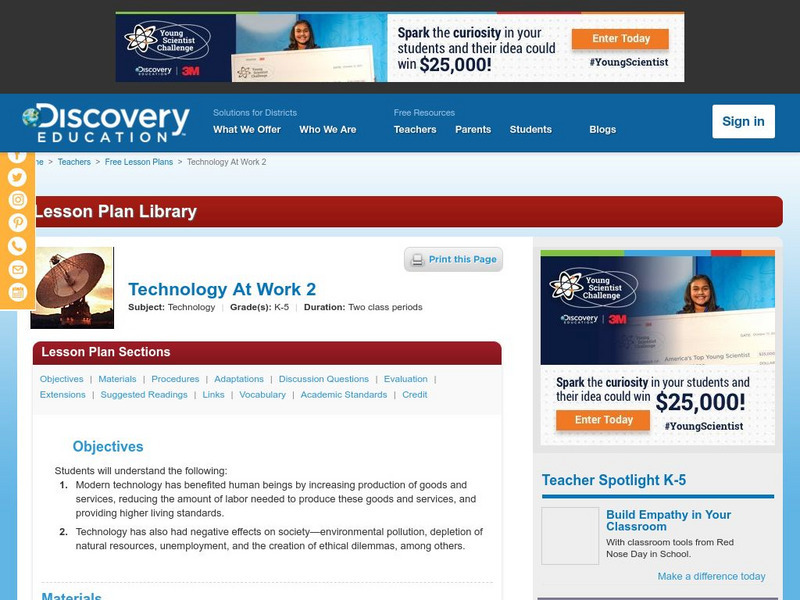The Wonder of Science
The Wonder of Science: Ms Ess3 3: Human Impact on the Environment
Assessment templates, videos, examples, lesson plans, and photos of student work that directly address standard MS-ESS3-3: human impact on the environment.
CK-12 Foundation
Ck 12: Fourth Grade Science: Life Science: Habitat Destruction
Looks at ways plants and animals, including humans, can impact the environment in this learning module.
National Geographic
National Geographic: Landscape
A landscape is part of the Earths surface that can be viewed at one time from one place. It consists of the geographic features that mark, or are characteristic of, a particular area. This resource examines different ways types of...
Thinkport Education
Thinkport: Made Clear: What Can You Do? What Can We All Do?
Can we do anything to slow climate change or prepare for the problems it brings? Yes, people across the globe are working on solutions.
Thinkport Education
Thinkport: Made Clear: What Role Do Humans Have in Climate Change?
Find out how humans are largely responsible for this recent climate change.
Thinkport Education
Thinkport: Made Clear: How Can We Adapt and Respond?
Find out how people are studying and predicting the impacts of climate change so that we can slow down the changes and prepare for what lies ahead.
Louisiana Department of Education
Louisiana Doe: Louisiana Believes: Social Studies: Grade 1: Impact on the Environment
First graders develop and express claims through discussions and writing which explain how people use and impact the environment.
Environmental Education for Kids
Eek!: Community Action & Citizen Science: Biomonitoring
Biomonitoring is the term scientists use to describe the use of plants, animals, or entire ecosystems to tell if our environment is polluted. Biomonitoring has been used by biologists and scientists to give us information about our...
Thinkport Education
Thinkport: Write Now: Where Has All the Sav Gone?
Students are presented with videos, text and data in order to write an informational piece about submerged aquatic vegetation (SAV) in the Chesapeake Bay.
Other
Bc Hydro: Ecosystem Goods and Services
Learn more about the value of the goods and services provided by our ecosystems.
McREL International
Mc Rel: What in the World Are You Doing?
For this activity, students decide on environmental concerns they have about their school environment, and work in groups to investigate an issue then report back to the class. The purpose is to raise awareness about how their school...
Cosmo Learning
Cosmo Learning: Sustainable Living
A collection of video lectures from a unique course taught at the University of California, Los Angeles on sustainable living. The lectures range in topics from food systems to organic gardens. The lecturers also vary in their expertise...
PBS
Pbs Learning Media: La'ona De Wilde: Environmental Biologist
In this video profile produced for Teachers' Domain, meet La'ona DeWilde, an environmental biologist who integrates her Athabascan heritage and her Western scientific training to help remote Alaskan villages address environmental issues.
Scholastic
Scholastic: Science Explorations: Animals, Adaptations and the Galapagos Islands
Discover the effects human impact has had on the native organisms of the Galapagos Islands.
PBS
Pbs Teachers: Scientific American: The Frontiers Decade: Environment Decade
Investigate man's impact on the environment. Observe different species to see how sensitive they are to human presence, and record your observations in a field notes log.
Sophia Learning
Sophia: Human Activity: Lesson 3
This lesson will describe how human activity can impact a natural ecosystem. It is 3 of 4 in the series titled "Human Activity."
Sophia Learning
Sophia: Human Activity: Lesson 4
This lesson will describe how human activity can impact a natural ecosystem. It is 4 of 4 in the series titled "Human Activity."
EL Education
El Education: San Diego Bay: 2008 Tide Calendar
Students complete original research to create a calendar. Each calendar month includes a page with informational text and original photographs featuring different endangered animals of the San Diego Bay including tidal information and a...
EL Education
El Education: San Diego: A Story of Exploitation and Restoration
Students work together with college professors, museum experts, naturalists, historians, and industry leaders to research and create a field guide indicating the effects of growth and changes in hunting and fishing industries in San...
Sophia Learning
Sophia: Human Activity
A webpage discussing how human activity has impacted soil, populations, water composition, and temperature. Website includes an audio tour of the material. [1:53]
Sophia Learning
Sophia: Environmental Concepts
This lesson will discuss the key concepts related to the human relationship with the environment.
Discovery Education
Discovery Education: Technology at Work 2
Students explore and debate the value of technological advances that have had both positive and negative effects on society.
BiologyWise
Biology Wise: Understanding the Process of Biological Magnification
Biological magnification is the term used to described the increasing accumulation of substances in organisms as one looks at higher trophic levels in a food chain. When that substance is a toxin, such as a heavy metal or a pesticide,...



